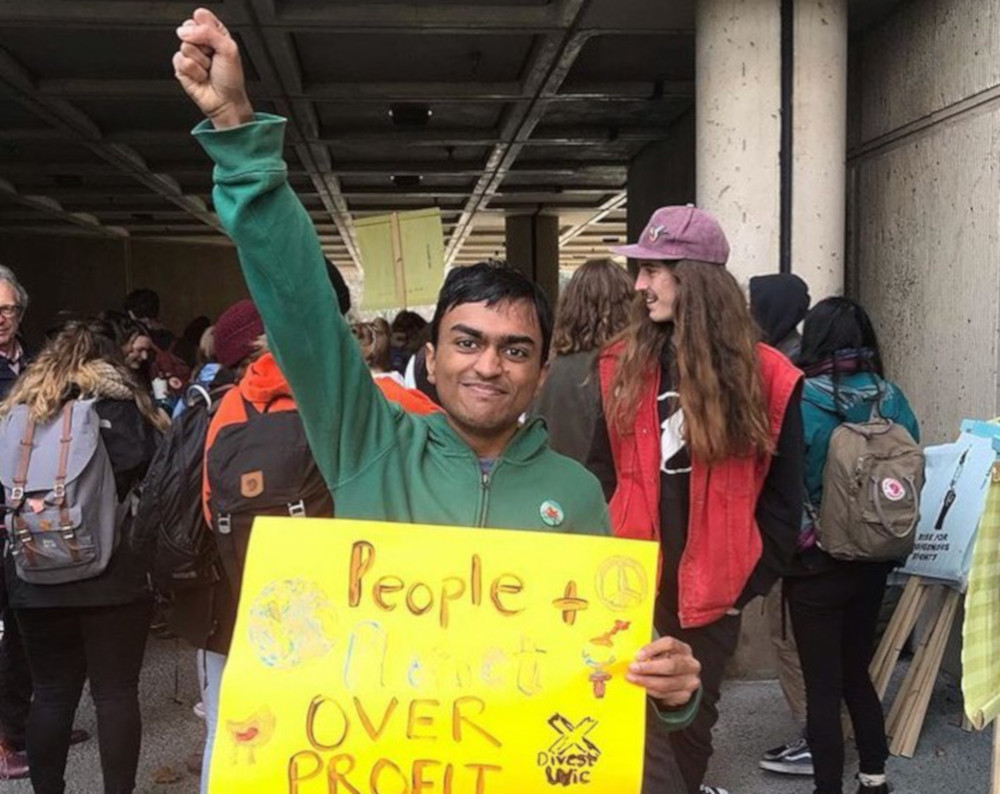Last week a supermajority of faculty members at UVic (77 per cent) voted in favour of fossil fuel divestment. Why? Two of UVic’s major strategic priorities are “Promoting Sustainable Futures” and “Fostering Respect and Reconciliation.” These are values we pursue in our teaching, research and community engagement. For us, they are not buzzwords.
Therefore, we think it is hypocritical for UVic to present itself as a sustainability and reconciliation leader while investing in companies that are primarily responsible for both the climate emergency and Indigenous dispossession.
For example, UVic has $2.5 million invested in Imperial Oil (the Canadian subsidiary of ExxonMobil). Records show that Imperial Oil’s own scientists confirmed the realities of climate change as early as the 1970s, and yet the company has willfully pursued denial and policy obstructionism as an accumulation strategy. By investing millions of dollars into Imperial Oil, UVic is tacitly supporting its history of climate change denial; indeed, the university is hoping to profit from it. That is sustainability leadership in high-speed reverse.
Many fossil fuel companies also contribute to the destruction of Indigenous lands and waters with their pursuit of new fossil fuel infrastructure projects. For example, UVic’s endowment fund has $700,000 invested in Teck Resources. Teck is currently pursuing one of the largest open-pit oil sands mines ever proposed. The project is in close proximity to many Cree and Dene families. According to Indigenous Climate Action, “This project threatens our Indigenous rights, ways of life, and ability to ensure the preservation of our lands and territories.”
The investment in Teck Resources contradicts UVic’s Strategic Plan and Indigenous Plan, which “commits to building and strengthening respectful relationships with Indigenous communities locally, provincially, nationally and around the world.” How can UVic claim that reconciliation and respectful Indigenous relationships are top priorities while materially investing in the ongoing dispossession of Indigenous peoples as well as destruction of their homelands and waterways?
The moral case for divestment has always been strong but critics sometimes worry about the financial implications. Won’t UVic’s endowment and pension funds lose money if they stop trying to profit from fossil fuel companies? The answer is no. The financial case for divestment is growing stronger by the day. Remember that Imperial Oil investment? It lost UVic over $700,000 last year.
Solar and wind stocks are outperforming oil and gas shares by a widening margin this year. Divested portfolios historically perform as well as, and often times better than, those invested in oil, gas and coal. Moreover, as energy generation shifts away from fossil fuels, investors who do not respond could be left with “stranded assets” — investments that are no longer profitable.

In the last four months alone, the University of California divested their $80-billion dollar portfolio, the European Investment Bank announced that it would stop lending to fossil fuel companies, and the Swedish Central Bank sold off its Alberta bonds because of that province’s high carbon footprint, which does not position the region well for the needed energy transition. More locally, UBC partially divested their endowment and their president has said that he’d like complete divestment soon. UVic has lost its opportunity to lead — but it is time we followed.
When we take on the fossil fuel industry, we take on one of the most politically and economically powerful industries in Canada. UVic researchers recently produced a report with the Canadian Centre for Policy Alternatives showing how oil, gas, and coal companies are the biggest lobbyists in Canada. Indeed, over the last seven years the industry has averaged six lobby visits with the Canadian government per day for a total of over 11,000 visits. Likewise, the same people sitting on oil company boards are also on other boards, such as those that govern universities. The chair of UVic’s endowment fund, which is yet to divest, is also on the board of Horizon North Logistics which builds modular camps for oil sands production.
The votes of the majority of faculty at UVic last week signal that it is time for the university to walk its talk on sustainability and reconciliation and divest from fossil fuel companies. The young people at the heart of UVic’s mission deserve for our institutions to act honourably in solving the crisis that they will inherit.
Happy holidays, readers! Our comment threads will be closed until Jan. 2 to give our moderators a break. See you in 2020! ![]()
Read more: Energy, Education, Environment














